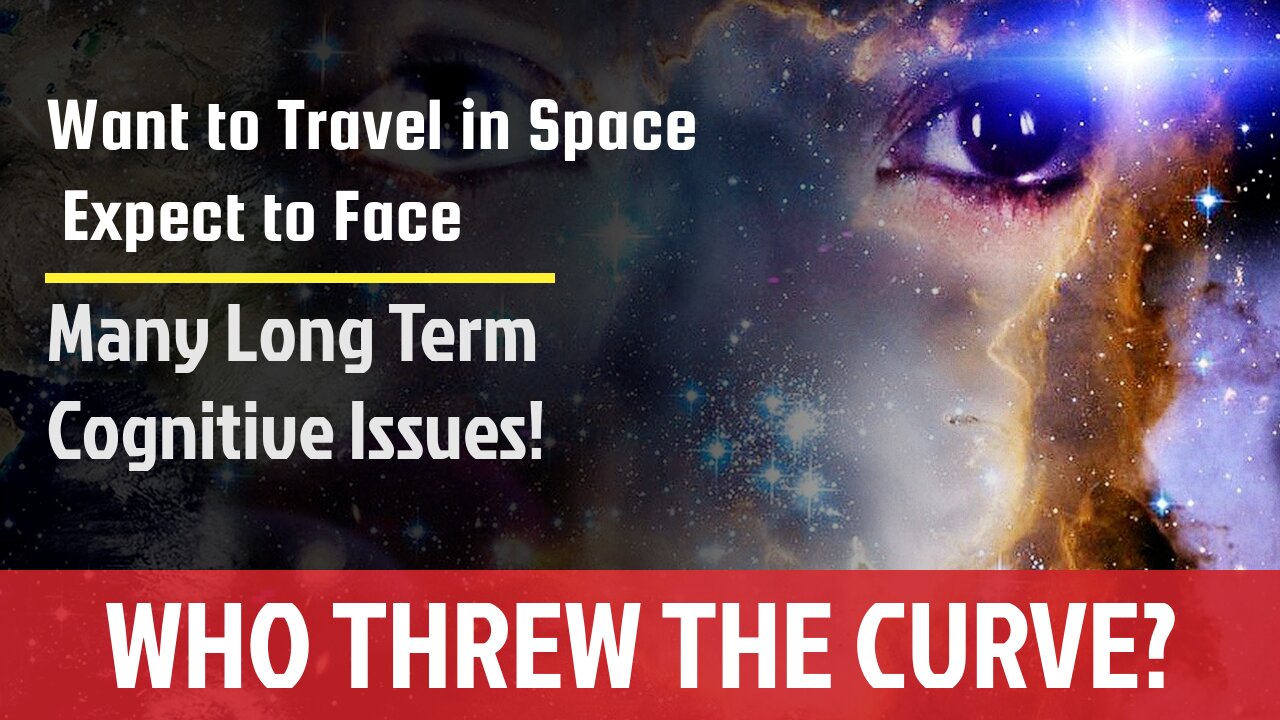Premium Only Content

Want to Travel in Space, Expect to Face Many Long Term Cognitive Issues! #space #realtalk #fp #fyp
As we continue to explore the cosmos, it is crucial to understand how space travel affects human beings, both physiologically and psychologically. Lets explore the long-term impacts of space travel on individuals and society, as well as the potential risks and challenges associated with space exploration.
In terms of physiological effects, space travel can have significant impacts on the human musculoskeletal system. In a microgravity environment, the body experiences a decrease in mechanical loading, leading to muscle atrophy and bone density loss. Astronauts can lose up to 1-2% of their bone mass per month in space, with the most significant losses occurring in the spine, pelvis, and legs. These changes can result in reduced physical performance and increased risk of fractures upon returning to Earth.
Space travel also affects the cardiovascular system. In microgravity, the distribution of blood and fluids in the body shifts, causing a headward fluid shift and a decrease in plasma volume. This fluid shift can lead to orthostatic intolerance, or difficulty maintaining blood pressure when standing upright, upon return to Earth. Additionally, the heart becomes more spherical and less efficient at pumping blood in microgravity, which may contribute to a decline in cardiovascular function.
Exposure to space radiation is another significant concern for astronauts. Galactic cosmic rays and solar particle events can damage cells, increase the risk of cancer, and contribute to degenerative diseases such as Alzheimer's. Efforts to mitigate these risks include shielding spacecraft and developing countermeasures to protect astronauts from radiation-induced damage.
Moving on to psychological effects, the confinement of living in a spacecraft, isolation from loved ones, and the vastness of space can lead to feelings of loneliness, depression, and anxiety. Furthermore, the extreme environment and high-stress nature of space missions can exacerbate these emotions. Sleep disturbances are common among astronauts, which can impair cognitive function and contribute to mood disorders.
Crew dynamics and interpersonal relationships are also crucial factors in the psychological well-being of astronauts. Positive relationships among crew members can alleviate stress and promote psychological resilience. However, conflicts and cultural differences can exacerbate the already challenging conditions of space travel. The development of effective communication and conflict resolution strategies is essential for maintaining good mental health during long-duration missions.
Finally, the long-term impacts of space travel on individuals and society should be considered. The risks and challenges associated with space exploration must be weighed against the potential benefits, including scientific discoveries and technological advancements. Additionally, the effects of space travel on individuals' physical and mental health must be carefully monitored to ensure the safety and well-being of astronauts. Further research is needed to mitigate the negative effects of space travel and maximize its potential benefits for humanity.
In the end, the after-effects of human space travel are complex and multifaceted. From physiological changes to psychological challenges, space travel presents a range of risks and opportunities for individuals and society. As we continue to explore the cosmos, it is crucial to understand these effects and develop strategies to mitigate the negative impacts of space travel while maximizing its potential benefits.
-
 1:03:45
1:03:45
Donald Trump Jr.
5 hours agoHappy Festivus: Airing Our Grievances and Stopping The Swamp w/Sean Davis | TRIGGERED Ep.201
34.6K106 -
 LIVE
LIVE
The Jimmy Dore Show
1 hour agoMedia ADMITS They Lied About Biden’s Decline! SNL Audience CHEERS For Luigi Mangione!
10,279 watching -
 DVR
DVR
Robert Gouveia
3 hours agoMatt Gaetz REJECTS Report, Sues Committee; Luigi Fan Club Arrives; Biden Commutes; Festivus Waste
20.1K23 -
 58:10
58:10
Kimberly Guilfoyle
5 hours agoAmerica is Back & The Future is Bright: A Year in Review | Ep. 183
25.7K27 -
 3:03:27
3:03:27
vivafrei
10 hours agoEp. 242: Barnes is BACK AGAIN! Trump, Fani, J6, RFK, Chip Roy, USS Liberty AND MORE! Viva & Barnes
71.9K25 -
 LIVE
LIVE
Dr Disrespect
8 hours ago🔴LIVE - DR DISRESPECT - MARVEL RIVALS - GOLD VANGUARD
3,229 watching -
 1:15:00
1:15:00
Awaken With JP
7 hours agoMerry Christmas NOT Happy Holidays! Special - LIES Ep 71
84.9K90 -
 1:42:21
1:42:21
The Quartering
8 hours agoTrump To INVADE Mexico, Take Back Panama Canal Too! NYC Human Torch & Matt Gaetz Report Drops!
78.9K58 -
 2:23:15
2:23:15
Nerdrotic
8 hours ago $9.32 earnedA Very Merry Christmas | FNT Square Up - Nerdrotic Nooner 453
57.3K4 -
 1:14:05
1:14:05
Tucker Carlson
7 hours ago“I’ll Win With or Without You,” Teamsters Union President Reveals Kamala Harris’s Famous Last Words
138K287